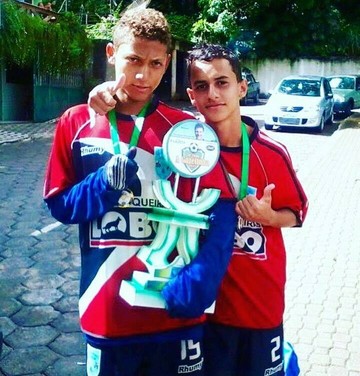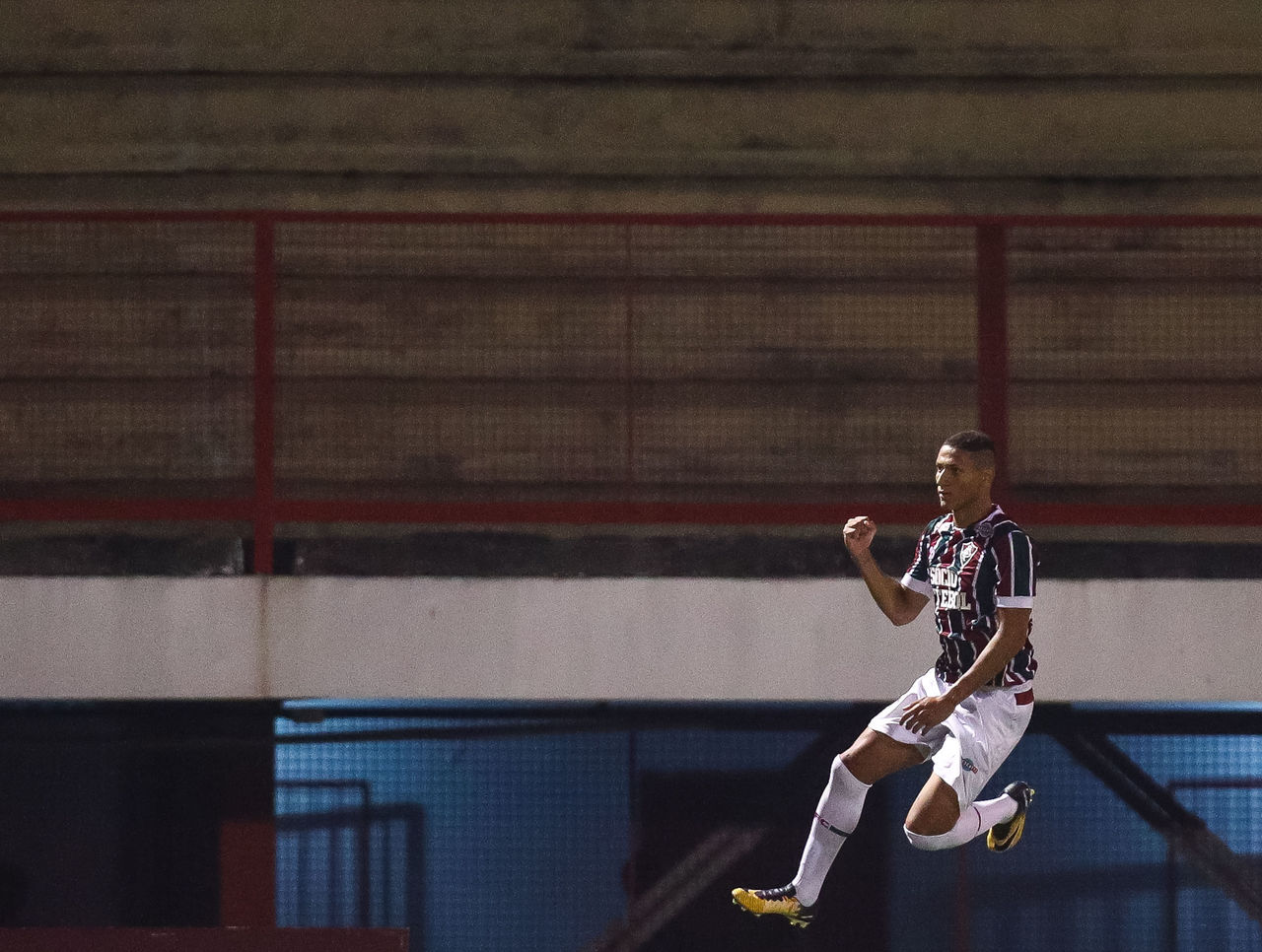Rise of Richarlison: How the Brazilian winger went from Vila Pavao to Watford
There was a time when it was hard to see how Richarlison would get a work permit that allowed him to play at Watford. The peak of the Brazilian winger's international duty was the Sudamericano Sub 20, where Brazil failed to qualify for the Under-20 World Cup and showed limitations. The youngster was - and remains - uncapped at the senior level. He also doesn't possess a European passport. On what basis would the Home Office grant him with the paperwork?
Watford couldn't even get a work permit for Adalberto Penaranda, who was at the heart of Venezuela's historic run to the final of the Under-20 World Cup. If the Venezuelan frontman didn't meet the criteria, Richarlison would surely be out of luck.
In the end, Richarlison's work permit application was successful, and he joined Watford from Fluminense for a reported fee of around £11.5 million. That price is looking like one of the best bargains of the summer transfer window, and, in retrospect, it's absurd that questions were being asked about his merit. A 90th-minute winner at Swansea City reiterated what's common knowledge at this point: the Hornets are blessed with one of Premier League's best wingers, and arguably the most colourful footballer in the top flight of English football.
Richarlison's journey started in Vila Pavao, a municipality in Brazil that's an 11-hour drive from Rio de Janeiro. It's where the Botocudo people lived until they were exterminated by whites, and a road connects the town to Nova Venecia, another municipality.
It was after crossing the bridge over the Rio Doce and moving to Nova Venecia that Richarlison discovered his vocation. He entered the prefecture's school at the age of 10 and was the top scorer and a runner-up at the Copa Gazetinha, an important tournament in the state of Espirito Santo. But, before he arrived at Real Noroeste - the first professional club of his career - he almost gave up. Trials at Figueirenese and Avai Futebol Clube were unsuccessful. He returned home with calluses and bruises rather than approval.
Luckily, Richarlison passed Real Noroeste's test, and, after one year with the club, he caught the attention of America MG, where he received salaries that allowed him to buy a house for his father, and where a meteoric rise in which he tallied nine goals in 24 games resulted in a transfer to Fluminense for a fee of R$ 10 million (£2 million).

(Courtesy: Globo Esporte)
Things got off to a rocky start for Richarlison at Fluminense. He suffered some injuries and was subjected to criticism, largely because of his price tag. But he eventually hit his stride. He appeared to benefit from a decision to move to the quiet neighbourhood of Tanque, located in Rio de Janeiro's western zone. The barrio, known for being the setting in a Brazilian crime film called "Tropa de Elite 2: O Inimigo Agora e Outro," allowed him to escape the chaos of the city, and it wasn't long after moving that the goals arrived.
"It's all quiet and simple here," Richarlison told Globo Esporte in March. "There's a little pool table down there, when there's time I'm there with my friends, I really like it here. The idea was to adapt faster, stay away from the 'buzz,' feel less of the big city."

(Courtesy: Getty Images)
Richarlison developed a reputation scoring in classicos, finding the back of the net against clubs like Flamengo and Botafogo FR. He flourished playing under Abel Braga, and his ability to cut in from the left side of the pitch with his right foot drew attention at Chelsea, Manchester United, AC Milan, and AFC Ajax. In the end, however, he opted for Watford.
It's looking like the right choice. Rather than decompose on the bench at Stamford Bridge, he's executing pannas and scoring 90th-minute winners for the Hornets. All too often, Brazilian youngsters join a European giant prematurely and watch as their careers sink into oblivion. But not him. He went somewhere that was in his best interest, somewhere that can be a launching pad rather than quicksand.
Comparisons to Ronaldo and Romario are inevitable for Brazilian adolescents who show promise, but Richarlison, who idolises his father and uncle instead of larger-than-life footballers, doesn't want to hear them. "I think it's cool, it's satisfying. But I do not want to be 'new Ronaldo' or 'new Romario,' no. I want to be called Richarlison, make my story."
HEADLINES
- IIHF president on Olympic arena delays: 'We're going to have a tournament'
- Redick: LeBron exhibiting 'a different kind of greatness' this year
- Jets' Fleury alert, moving extremities after leaving ice on stretcher
- Flyers' Zegras: Feels 'f---ing amazing' to score twice, beat Ducks
- Wembanyama returns with 30 but Spurs fall to Grizzlies